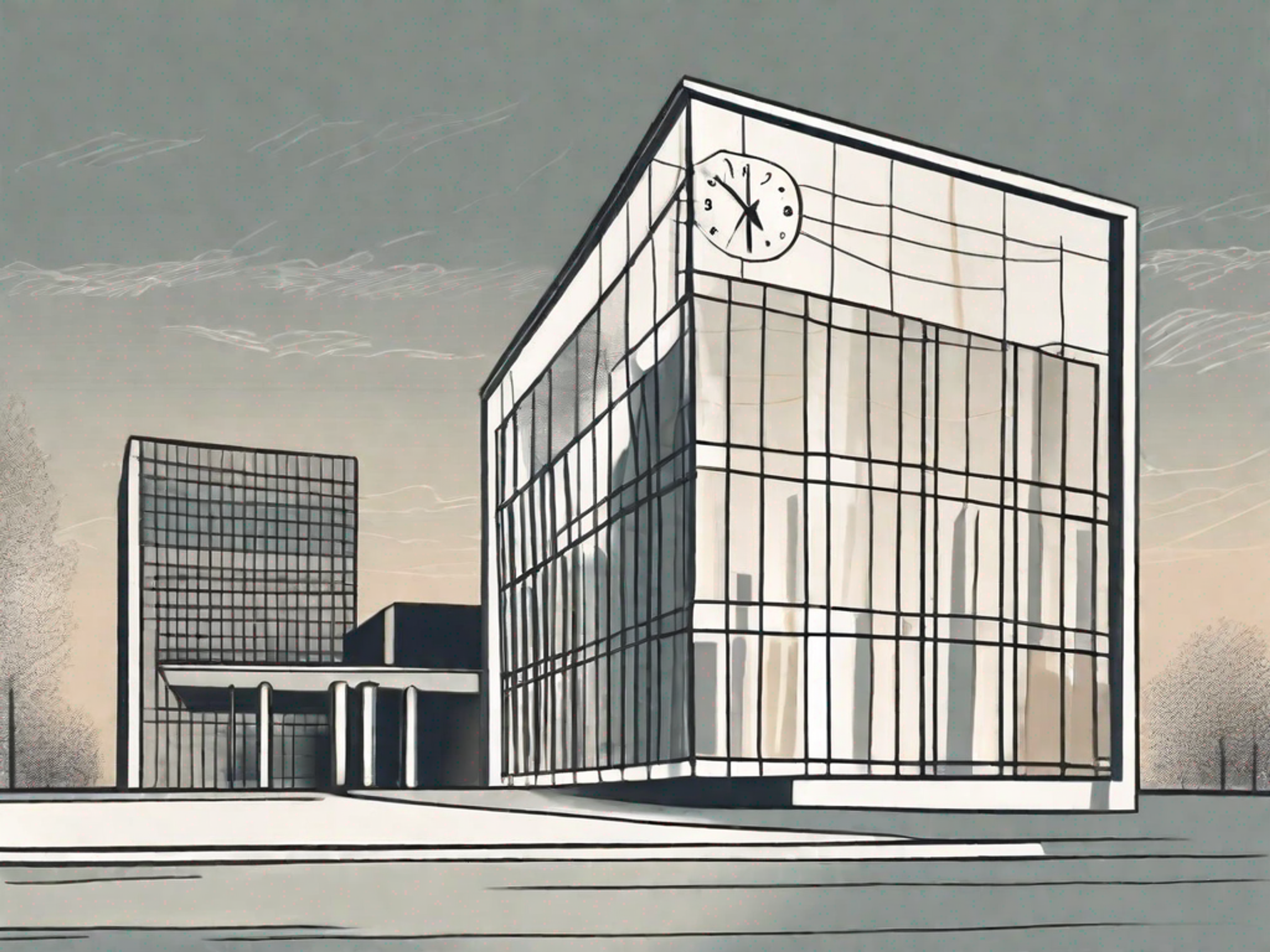MIT EMBA (Executive MBA) Degree – Program Overview
Looking to level up your career with an Executive MBA from MIT? This article provides a comprehensive overview of the prestigious MIT EMBA program, including insights into the curriculum, admissions process, and the unique benefits of earning an EMBA from one of the world's top institutions.
Posted April 10, 2025

Table of Contents
Free Event

Featuring Melanie E.
How to Get a Head Start on Your MBA Application
Starting Wednesday, April 16
10:00 PM UTC · 60 minutes

Featuring Melanie E.
The MIT EMBA (Executive MBA) program is a prestigious degree offered by the Massachusetts Institute of Technology (MIT). Designed for experienced professionals who wish to enhance their leadership skills and business acumen, this program provides a comprehensive overview of business management and strategic decision-making in a rapidly changing global marketplace.
Understanding the MIT EMBA Program
The core philosophy of the MIT EMBA program centers around equipping students with the knowledge and skills necessary for success in today's competitive business landscape. The program emphasizes a holistic approach to business education, combining theoretical frameworks with practical application. By examining real-world case studies and engaging in hands-on projects, students gain a deep understanding of how to navigate complex business challenges.
One of the key aspects of the MIT EMBA program is its commitment to fostering leadership skills. The program recognizes that effective leadership requires more than just technical expertise. It requires the ability to inspire and motivate others, to think strategically, and to make informed decisions. Through a combination of coursework, workshops, and experiential learning opportunities, the program helps students develop these essential leadership qualities.
Another important element of the MIT EMBA program is its focus on innovation. The program encourages students to think outside the box, to challenge conventional wisdom, and to explore new ideas. Through courses on entrepreneurship, design thinking, and technology innovation, students learn how to identify and capitalize on opportunities for growth and change. They also have the opportunity to work on real-world innovation projects, collaborating with industry leaders and experts to develop and implement innovative solutions.
Read: 25 Best Executive MBA Programs in the World
The Core Philosophy of the MIT EMBA Program
At the heart of the MIT EMBA program is the belief that effective leadership requires a strong foundation in both technical and interpersonal skills. The program aims to develop leaders who can drive innovation, foster collaboration, and make sound strategic decisions. It emphasizes the importance of ethical leadership, innovation, and a global mindset.
One of the ways the program instills these values is through its focus on experiential learning. Students have the opportunity to work on real-world business challenges, applying the knowledge and skills they have acquired in the classroom to practical situations. This hands-on approach not only deepens their understanding of business concepts but also helps them develop problem-solving and critical thinking skills.
In addition to experiential learning, the program also emphasizes the importance of collaboration and teamwork. Students work in diverse teams, bringing together individuals from different backgrounds and areas of expertise. This collaborative environment encourages students to learn from one another, to leverage their unique perspectives, and to develop effective communication and interpersonal skills.
Key Features of the MIT EMBA Program
The MIT EMBA program offers several unique features that set it apart from other business programs. One notable feature is the focus on experiential learning. Throughout the program, students have the opportunity to apply their knowledge in real-world settings through internships, consulting projects, and immersive experiences at leading organizations. This hands-on approach enhances learning outcomes and provides valuable networking opportunities.
In addition to experiential learning, the program also emphasizes a cross-disciplinary approach, drawing on the diverse strengths of the MIT community. Students collaborate with faculty and peers from various fields, including business, engineering, technology, and the sciences. This interdisciplinary environment fosters innovation and encourages students to think critically and creatively.
Furthermore, the program provides a global perspective on business. Students have the opportunity to study and work with international organizations, gaining insights into different business cultures and practices. This global exposure helps students develop a broader understanding of the global marketplace and prepares them to navigate the complexities of a global business environment.
Lastly, the program offers a strong network of alumni and industry connections. Students have access to a vast network of successful business leaders who can provide mentorship, guidance, and career opportunities. The program also organizes networking events, guest lectures, and industry panels, allowing students to connect with professionals in their field of interest.
Admission Process for the MIT EMBA Program
The admission process for the MIT EMBA program is highly competitive, attracting talented professionals from diverse industries and backgrounds. The selection committee evaluates candidates based on several factors, including academic qualifications, work experience, leadership potential, and personal qualities such as motivation and resilience.
When it comes to academic qualifications, the MIT EMBA program seeks candidates who have a strong educational foundation. While a bachelor's degree or its equivalent is required, the program also values candidates who have pursued additional educational opportunities, such as certifications or advanced coursework, to enhance their knowledge and skills in their respective fields.
Work experience is another crucial aspect that the selection committee considers. The program requires applicants to have a minimum of five years of professional work experience, with increasing levels of responsibility. This requirement ensures that candidates have gained valuable insights and practical knowledge in their respective industries, allowing them to contribute meaningfully to the program's collaborative learning environment.
Leadership potential is highly valued in the MIT EMBA program. The selection committee looks for candidates who have demonstrated leadership skills and the ability to influence and inspire others. This can be showcased through various professional experiences, such as leading teams, managing projects, or initiating innovative solutions within their organizations.
Personal qualities, such as motivation and resilience, are also carefully evaluated during the admission process. The program seeks individuals who are driven and passionate about their goals, as well as those who have demonstrated the ability to overcome challenges and adapt to changing circumstances. These qualities are essential for success in the rigorous and demanding EMBA program.
Eligibility Criteria
To be eligible for the MIT EMBA program, applicants must have a minimum of five years of professional work experience, with increasing levels of responsibility. A bachelor's degree or its equivalent is required, and applicants are expected to demonstrate strong quantitative and analytical skills. Additionally, candidates must have the support of their employer, as the program requires a significant time commitment.
Having a solid foundation in quantitative and analytical skills is crucial for success in the MIT EMBA program. The curriculum includes rigorous coursework in areas such as finance, economics, and data analysis, which requires candidates to have a strong grasp of these concepts. Applicants are expected to demonstrate their proficiency in these areas through their academic records, standardized test scores, and any relevant certifications or professional experiences.
The support of the employer is also an important aspect of the eligibility criteria. The MIT EMBA program is designed to be pursued while working full-time, and it requires a significant time commitment. Therefore, candidates must have the endorsement and support of their employers, who recognize the value of investing in their employees' professional development and growth.
Application Requirements and Deadlines
The application requirements for the MIT EMBA program include submitting a completed application form, official transcripts from all post-secondary institutions attended, a resume, two letters of recommendation, and essays that demonstrate the applicant's motivation and fit with the program. The application deadlines vary each year, and it is advisable to submit the application well in advance to ensure consideration.
When it comes to the application essays, candidates are encouraged to take the opportunity to showcase their unique experiences, perspectives, and aspirations. These essays provide a platform for applicants to articulate their motivations for pursuing the MIT EMBA program and how they believe it aligns with their long-term career goals. The selection committee carefully evaluates these essays to assess the candidate's fit with the program and their potential contributions to the EMBA community.
Letters of recommendation play a crucial role in the application process as they provide insights into the candidate's professional accomplishments, leadership potential, and personal qualities. It is important for applicants to choose recommenders who can speak to their strengths and provide specific examples of their abilities and achievements. These letters serve as valuable endorsements that help the selection committee gain a comprehensive understanding of the candidate's capabilities.
Overall, the application process for the MIT EMBA program is designed to identify exceptional individuals who possess the necessary qualifications, skills, and qualities to thrive in the program. It is a rigorous and comprehensive process that ensures the selection of a diverse cohort of talented professionals who will contribute to the vibrant and collaborative learning environment at MIT.
Curriculum of the MIT EMBA Program
The curriculum of the MIT EMBA program is designed to provide a comprehensive understanding of key business concepts and develop the skills necessary for effective leadership. The program consists of a combination of core courses, specializations, and electives tailored to individual career goals.
Overview of the Course Structure
The MIT EMBA program follows a rigorous and dynamic course structure. It begins with a solid foundation in core business disciplines such as finance, marketing, operations, and strategy. These core courses provide a framework for understanding the complexities of the business world and lay the groundwork for advanced coursework.
As students progress, they can choose from a wide range of specialization courses that align with their interests and career goals. Specializations are offered in areas such as entrepreneurship, innovation, finance, and technology management, allowing students to develop expertise in their chosen field of interest.
Specializations and Electives
In addition to the core and specialization courses, the MIT EMBA program offers a variety of elective courses that allow students to further customize their learning experience. These electives cover a broad range of topics, including negotiation, leadership development, global business, and sustainability.
Moreover, students also have the option to participate in study tours and experiential learning programs that provide opportunities to explore international business environments and gain firsthand insights into different markets and cultures.
Faculty and Learning Environment at MIT
The faculty at MIT bring a wealth of knowledge and expertise to the EMBA program. They comprise renowned scholars, industry experts, and experienced practitioners who are dedicated to ensuring an engaging and impactful learning experience for all students.
Meet the Professors
MIT professors are known for their groundbreaking research and innovative teaching methods. They employ a variety of pedagogical approaches, including case studies, simulations, group projects, and guest lectures, to foster an interactive and collaborative learning environment. Students benefit from the personal attention and mentorship of these distinguished faculty members, who are at the forefront of their respective fields.
Campus Facilities and Resources
The MIT campus offers state-of-the-art facilities and resources that enhance the learning experience. Students have access to cutting-edge technology and research labs, extensive libraries, and collaborative spaces that support both individual and team-based work. The campus also hosts various seminars, workshops, and networking events, providing opportunities for students to connect with industry leaders and thought-provoking speakers.
Career Opportunities after MIT EMBA
Completing the MIT EMBA program opens up a world of exciting career opportunities for graduates. The program equips students with the necessary skills, knowledge, and network to excel in leadership roles in a wide range of industries and sectors.
Job Prospects and Industry Connections
MIT has strong connections with leading companies and organizations worldwide, offering a valuable network for job prospects. Employers value the advanced training and strategic thinking skills that MIT EMBA graduates bring to the table. Graduates have gone on to secure executive-level positions in areas such as consulting, finance, technology, healthcare, and entrepreneurship.
Alumni Network and Support
One of the greatest assets of the MIT EMBA program is its extensive alumni network. Graduates join a global community of successful business professionals who are passionate about fostering collaboration and mentorship. The program maintains strong ties with its alumni, providing ongoing support, networking opportunities, and access to exclusive events and resources.
In conclusion, the MIT EMBA program offers a premier educational experience for professionals seeking to enhance their leadership skills and advance their careers. Through a comprehensive curriculum and a focus on practical application, students gain the knowledge, skills, and network necessary to excel in today's dynamic business environment. The program's emphasis on innovation, collaboration, and ethical leadership sets it apart, preparing graduates to make a meaningful impact on their organizations and the world at large.
Final Note
Leland provides you with the coaching, content, and community that you need to get into the MIT Executive MBA program and accomplish other ambitious goals. Sign up today to gain access to additional free resources, community events, small group classes, world-class coaching, and more.


















